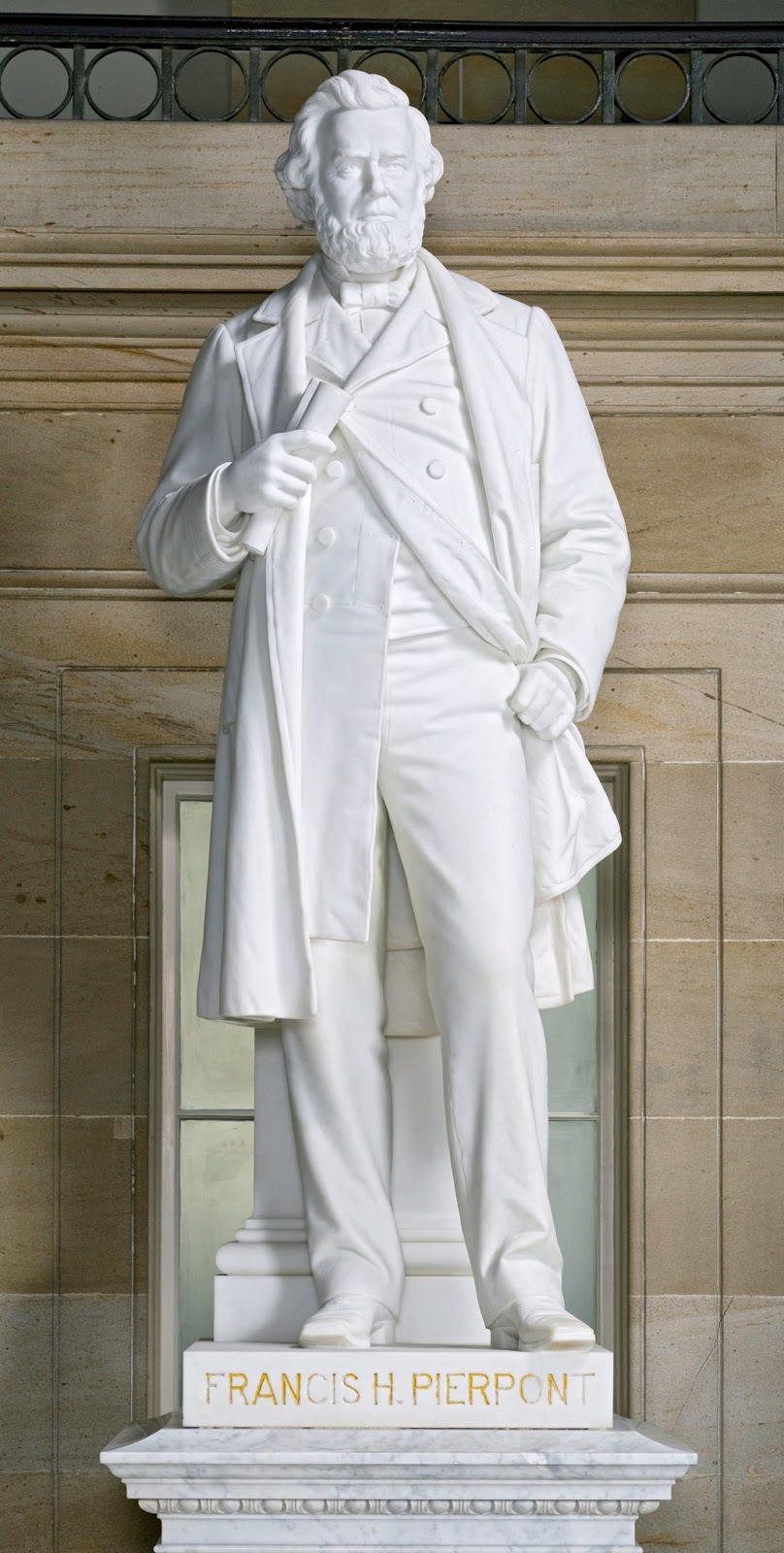Young Anna went to school in southwestern Pennsylvania at the Washington Female Seminary (the same institution earlier attended by Rebecca Harding Davis). Her husband was the editor of a newspaper in Pittsburgh and an occasional humor writer; she began contributing both poetry and prose to various periodicals as well. She also edited several publications for use in Sunday schools. Possibly her most popular work in her lifetime was the book Nehe, a Tale of the Times of Artaxerxes (1901), a tale set in Persia inspired by the Biblical Nehemiah, and dedicated to her famous father. Several years later, when her father was honored with a statue in the Capitol in Washington, D.C. (pictured at left), she wrote a poem for its unveiling which was presented by her daughter. The poem was less of a highlight of her father the governor, and more of an ode to West Virginia itself, including this stanza:
In the shout and din of battle, she was born, the brave, free State;
Humble men stood sponsor for her, but their every deed was great—
West Virginia, child of Freedom, lift your happy head on high;
Truth and Justice are your birthright; you were born to Liberty.
In Pittsburgh, Siviter also worked with several local Red Cross chapters, founded a kindergarten association, was a founding board member of the Pittsburgh Children's Hospital, joined the Daughters of the American Revolution, and various other civic organizations. Among her published books are The Sculptor, and Other Verses, Songs of Hope, Songs Sung Along the Way, and, posthumously, Recollections of War and Peace. She also contributed two recipes for a cook book. Her poem "Doggie and the Burglars" was found in a Wichita newspaper in 1899:
The house was dark and silent
When Mr. Doggie woke.
"I thought," said Mr. Doggie,
"For sure that some one spoke.
"I think," said Mr. Doggie,
"That I will take a walk.
It's very trying in the night
To think that you hear talk.
"Let's see," said Mr. Doggie;
"My master's gun I'll take.
I do not mean to use it,
But for appearance sake."
So forth went Mr. Doggie,
And how he bowwowed when,
Just getting in the window,
He found two robber men.
And when the thieves saw coming
That big dog and his gun
You never saw such running
As those scared men did run.
*Note: I had difficulty confirming the birth date of Anna Siviter; some sources list her birth year as 1859, only one offered the April 14 date. The image of young Anna comes from a booklet produced by Pierpont Community and Technical College.


No comments:
Post a Comment
Note: Only a member of this blog may post a comment.